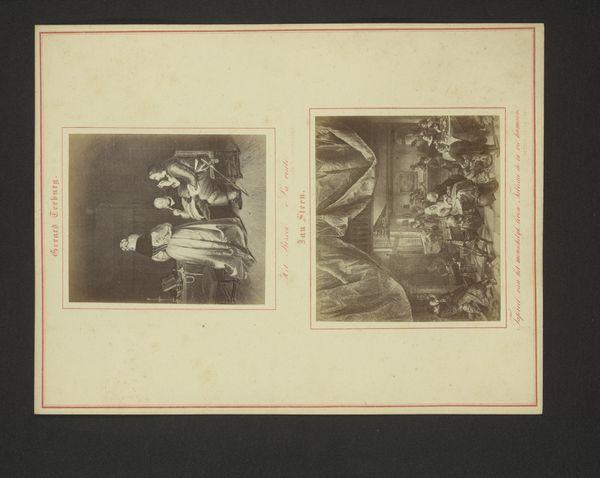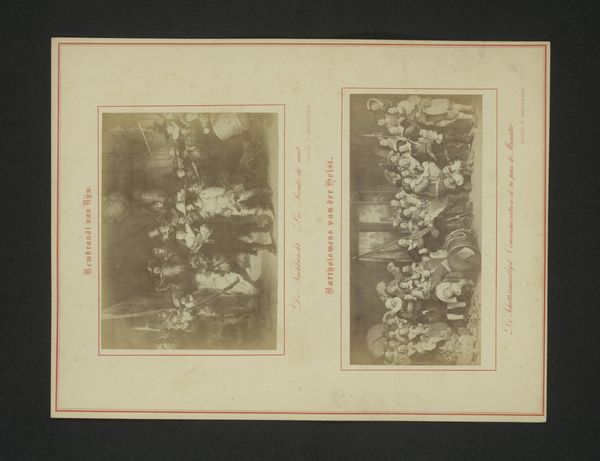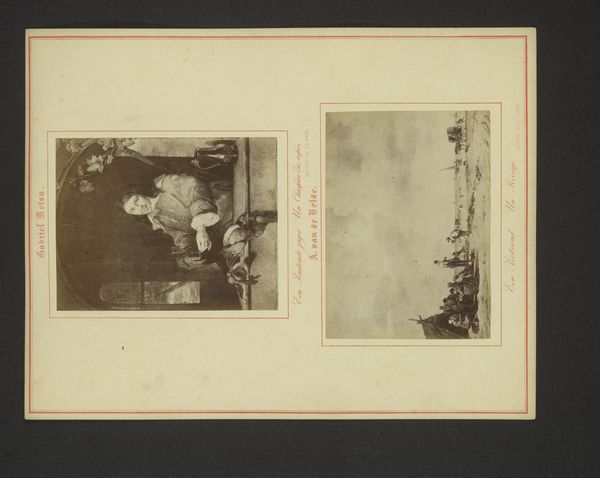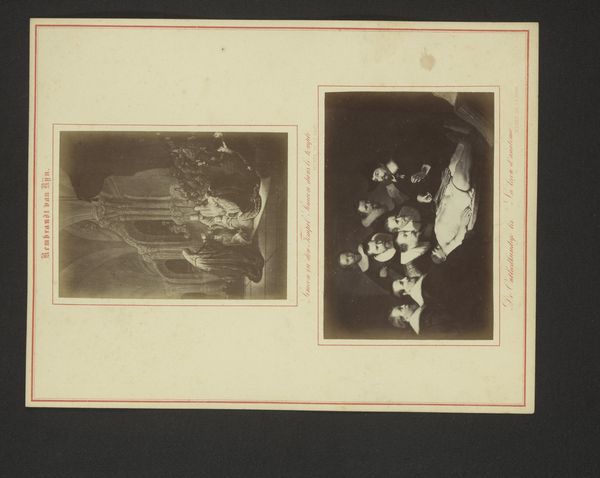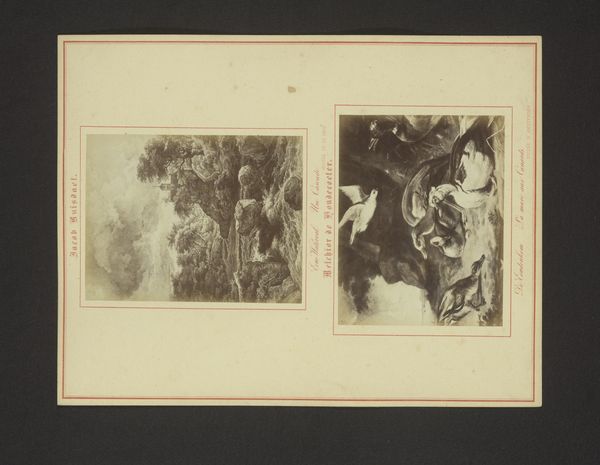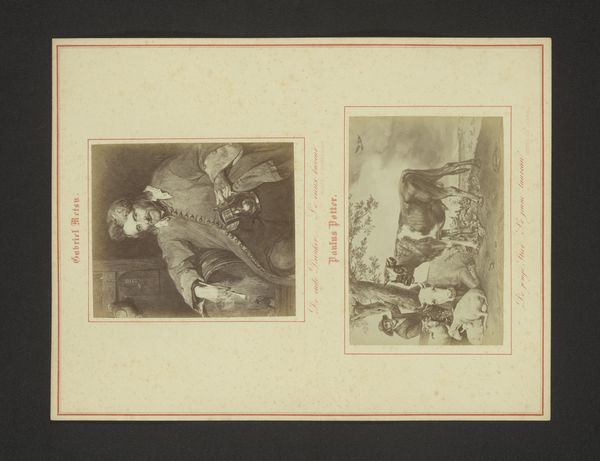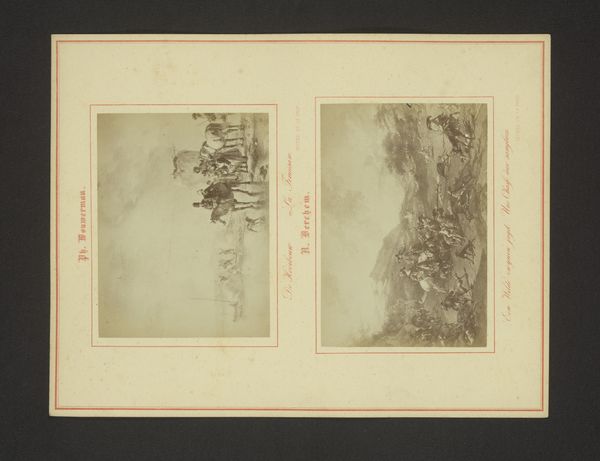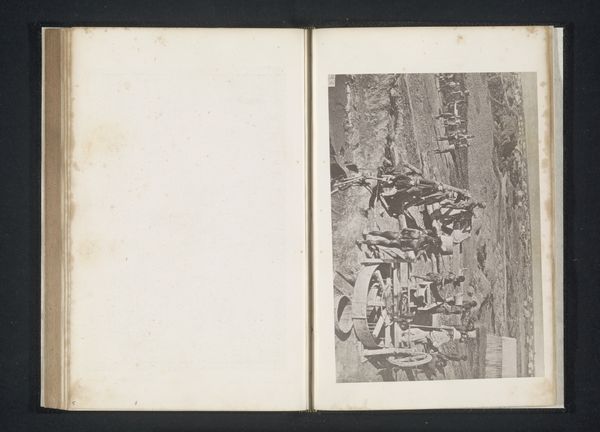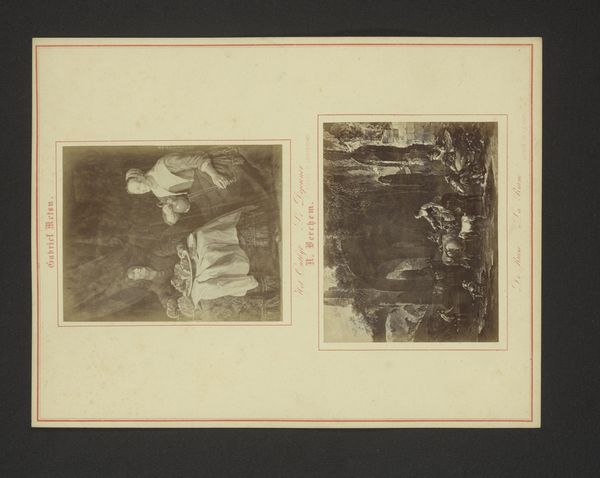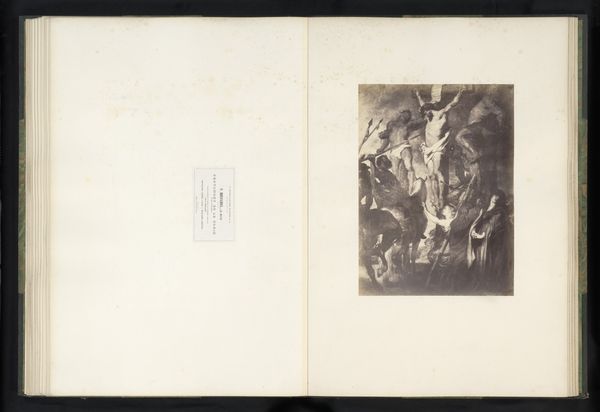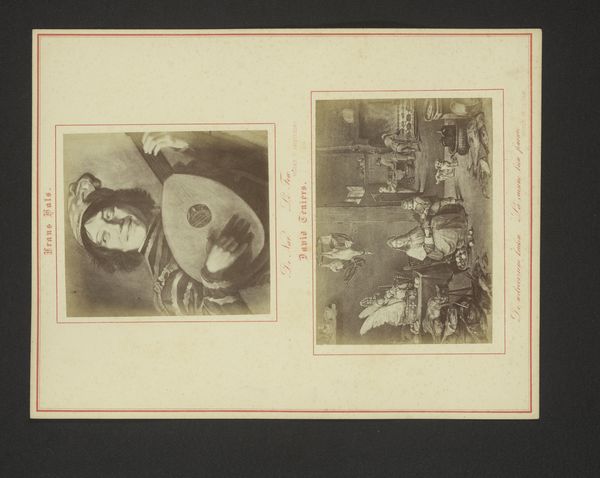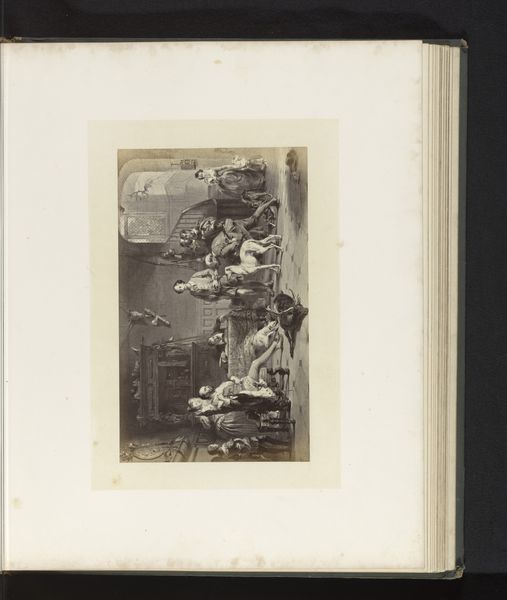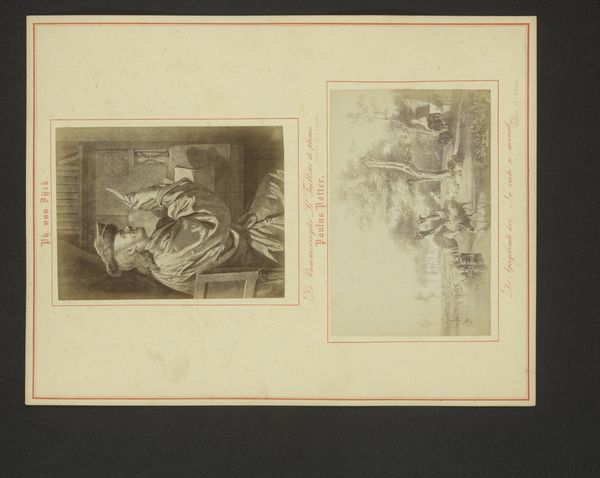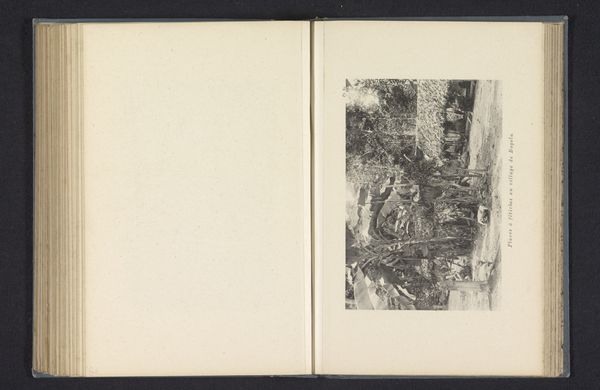
Fotoreproducties van Het Sint-Nicolaasfeest door Jan Steen en De kwakzalver door Jan Steen c. 1866 - 1874
0:00
0:00
anonymous
Rijksmuseum
print, paper, photography
#
portrait
#
aged paper
#
homemade paper
#
paper non-digital material
#
dutch-golden-age
#
paperlike
# print
#
light coloured
#
paper texture
#
figuration
#
paper
#
photography
#
folded paper
#
genre-painting
#
history-painting
#
paper medium
#
design on paper
#
historical font
Dimensions: height 114 mm, width 97 mm, height 93 mm, width 126 mm
Copyright: Rijks Museum: Open Domain
Editor: Here we have "Fotoreproducties van Het Sint-Nicolaasfeest door Jan Steen en De kwakzalver door Jan Steen," created sometime between 1866 and 1874 by an anonymous artist. These are photographic reproductions of Jan Steen's paintings, mounted on paper. It strikes me how this piece speaks to the power of reproduction in democratizing access to art, but also changes how it's viewed. What can you tell us about this artwork? Curator: It’s fascinating how photography recontextualizes these genre scenes by Jan Steen. We must consider the socio-political forces at play in the mid-19th century. Photography allowed for broader distribution of art, moving it from elite circles to a wider public. How do you think presenting these images together, side-by-side, impacts their interpretation? Editor: That's a great question. I guess by displaying them together like this, the work invites a comparative analysis—maybe about different facets of daily life, celebration versus skepticism, or even contrasting Steen's compositional choices in the two scenes. Does that resonate with your view of it? Curator: Exactly. Moreover, it transforms the role of the artwork itself. Is this a documentary object, an artwork in its own right, or something in between? The rise of photographic reproduction also influenced the art market, museum collections, and the public’s expectations of art. To further emphasize, the image allows everyday people to experience classic pieces by a renowned artist. Editor: I never thought about that democratization aspect before, really makes me look at art in a completely new manner. Thanks! Curator: My pleasure. Thinking about access and interpretation helps to consider art’s continuing influence.
Comments
No comments
Be the first to comment and join the conversation on the ultimate creative platform.
